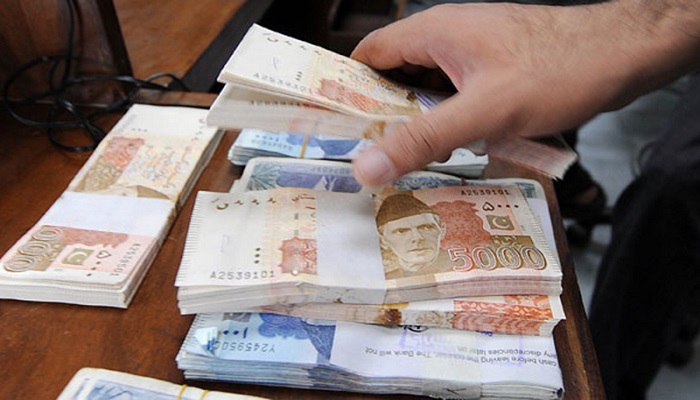Late tax filers penalised: Banks block foreign currency account transactions
Banks say acting under law; those penalised need to file taxes, pay surcharge to FBR to be included in Active Taxpayers List
March 11, 2021

- Account holders say banks have stopped their transactions in forex accounts as their name does not appear on Active Taxpayer List.
- Non-filers have to file taxes, pay a surcharge to FBR to avoid penalty.
- Even though banks are following the law, tax experts say confusion of what a tax filer is raises questions regarding the action.
KARACHI: Banks in Pakistan have refused to entertain foreign exchange transactions in accounts held by individuals who are not included in the national Active Taxpayers List (ATL) due to late filing of returns and/or nonpayment of late filing surcharge, sources privy to the matter have told The News.
The publication reported that several account holders have complained that their banks have blocked their transactions citing the fact that their name does not appear on the ATL.
The account holders have been facing the hassle since the issuance of the new ATL for tax year 2020 on March 1.
“Half of returns filers have become inactive after the new ATL,” a bank manager told The News on the condition of anonymity.
Non-filers need to file their returns and pay a surcharge to be included in the ATL.
Surcharges are Rs1,000 for individuals, Rs10,000 for association of persons and Rs20,000 for a company.
Read more: FBR goes after Payoneer, freelancers over billions of rupees transferred from abroad
Although the banks are blocking the transactions under the law, tax experts say an undefined terminology of what a 'filer' is raises questions over the decision.
In April 2018, the government had brought an amendment into the Protection of Economic Reforms Act, 1992 to document transactions made through foreign currency accounts.
Under the change, transactions were allowed only for those who were tax filers as defined in the Income Tax Ordinance, 2001.
“Foreign currency accounts can be fed by remittances received from abroad, travellers cheques issued outside Pakistan (whether in the name of account holder or in the name of any other person) and foreign exchange generated by encashment of securities issued by the Government of Pakistan. A foreign currency account of a citizen of Pakistan can also be fed with cash foreign currency only if the account holder is a filer as defined in the Income Tax Ordinance, 2001,” reads the law.
When the amendment was notified, however, the definition of a filer under clause 23-A of Section 2 of the Income Tax Ordinance 2001 was “a taxpayer whose name appears in the Active Taxpayers List issued by the board [Federal Board of Revenue].”
Read more: FBR slashes income tax rate to 0.25% for sugar, cement, and edible oil dealers
However, that clause was not added in the Finance Act 2019.
Tax experts say that since income tax law is silent on the term ‘filer’, a general explanation suggests that a late filer should also be treated as a filer.
An ex-FBR official, Badaruddin Qureshi, said the concept of filer and non-filer was introduced through the Finance Act, 2014 with the objective to discourage non-filers by imposing higher rates of withholding tax.
Read more: Govt to abolish corporate income tax exemptions to address IMF concerns
Qureshi said now late filers need to pay a surcharge to appear on the ATL to get the benefit of reduced rates of withholding taxes.
“An appropriate amendment is needed in the relevant laws to define a filer,” he agreed.









